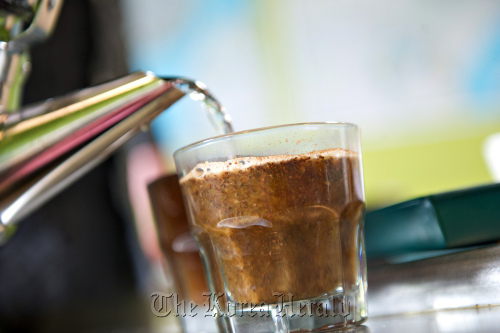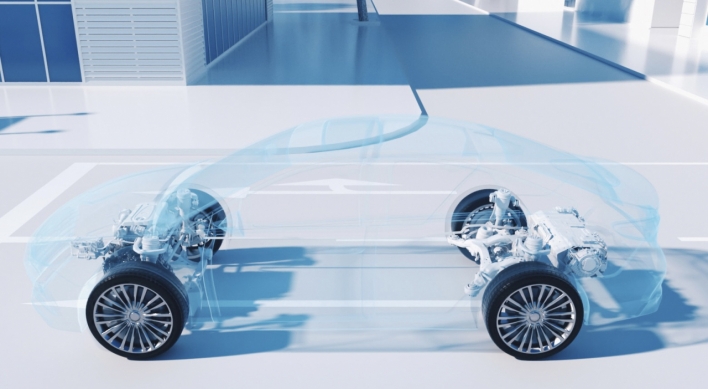Coffee has been demonized and blamed for many ailments including heart disease, but evidence has emerged that the drink might actually help prevent liver cancer.
A study done in Singapore has found that the more coffee you drink, the more you lower your risk of liver cancer. If you take three or more cups a day, for example, your risk could be up to 44 percent lower than for a total abstainer.
A study done in Singapore has found that the more coffee you drink, the more you lower your risk of liver cancer. If you take three or more cups a day, for example, your risk could be up to 44 percent lower than for a total abstainer.

But the fine print here is that these findings apply only to Singaporean Chinese, as they come from the first large study on the link between coffee intake and liver cancer in the segment of the local population most susceptible to the disease.
The findings, from the Singapore Chinese Health Study of more than 63,000 ethnic Chinese aged 45 to 74 living here, were recently published in the American journal Cancer Causes and Control.
When the participants were recruited for the study, they did not have liver cancer. By 2006, 360 had developed it.
Begun in 1993, the study was carried out by the department of epidemiology and public health in the Yong Loo Lin School of Medicine at the National University of Singapore, in collaboration with researchers from the United States.
The research adds to the growing body of evidence debunking the long-held notion that coffee is bad for health. Earlier this year, other researchers had already reported, after studying 3,000 coffee drinkers here, that no detrimental effects had been brought about by the dark brew.
Researchers postulate that the liver-protecting properties of coffee come from two of the oils found in the beans: cafestol and kahweol. They are present whether your drink is a designer concoction, a kopitiam brew or a mix out of a three-in-one foil pack.
More relevant is how the coffee is made, as some brewing methods could remove the cafestol and kahweol.
For example, brews from coffee machines that use paper filters to sieve out the coffee grounds tend to contain negligible amounts of the two oils, possibly because they are absorbed by the paper.
Dark roasted coffee, like the kind sold in coffee shops here, is usually prepared by simply boiling coffee powder in a muslin bag. This method seems to preserve the oils, as is the case for other unfiltered brews such as Turkish coffee.
Associate professor Koh Woon Puay, who was involved in the study, said the findings do not mean that people should start gorging on coffee ― they just mean that coffee drinkers can now worry less as they down their brews.
She said: “Coffee has often had to fight this bad image, compared with tea, which is often portrayed very positively.”
Indeed, coffee scores higher as far as liver cancer is concerned ― her team, which also studied the effects of drinking green tea, found that it delivered no protection against the disease.
Studies similar to this installment of the Singapore Chinese Health Study’s look at the link between liver cancer and coffee have been done in Japan and Italy, and the same conclusions drawn, but the disease is not common in the two countries, so the results were less significant.
In the Republic, liver cancer is the fourth most common among men, going by data from the Singapore Cancer Registry. Between 2004 and 2008, as many as 1,758 cases were diagnosed. The illness is also the third most deadly cancer here, contributing to 16.2 per cent of all cancer deaths.
According to July 1 figures from the Singapore Liver Cancer Registry, which tracks about 2,300 patients, eight in 10 are men, mostly Chinese. A third of the patients are aged between 61 and 70.
Dr. Desmond Wai of the Asian Centre for Liver Diseases and Transplantation said the study should reassure patients who might be thinking of kicking their coffee habit for fear of harming their livers. The liver specialist and gastroenterologist said: “Many can’t believe this convenient, inexpensive habit can protect them from liver cancer.”
The findings are likely to alter the approach some doctors take. Dr. Wai explained that many tend to focus on controlling the viruses that lead to liver cancer, such as the hepatitis B virus. ‘They might not realize that other methods can help, such as drinking coffee.’
Still, moderation is vital. Dr. Wai said over-consumption of caffeine could trigger heart palpitations, insomnia, headaches or even panic attacks. He recommends no more than three cups a day.
Researchers involved in the Singapore Chinese Health Study also looked at whether drinking coffee could protect against colorectal cancer, the No.1 cancer here.
The results, published separately last year, suggested that coffee could lower the risk of advanced colon cancer, but only among smokers. Koh said more studies were needed.
In 2008, it was found that drinking four or more cups of coffee a day might lower the risk of diabetes by 30 percent.
By Poon Chian Hui (The Straits Times)








![[Kim Seong-kon] Democracy and the future of South Korea](http://res.heraldm.com/phpwas/restmb_idxmake.php?idx=644&simg=/content/image/2024/04/16/20240416050802_0.jpg&u=)









![[Today’s K-pop] Zico drops snippet of collaboration with Jennie](http://res.heraldm.com/phpwas/restmb_idxmake.php?idx=642&simg=/content/image/2024/04/18/20240418050702_0.jpg&u=)